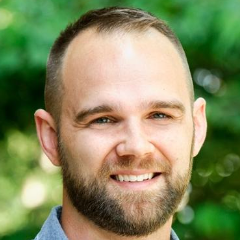You are not currently logged in. Please create an account or log in to view the full course.
Nucleophilic Substitution and the Sₙ2 Reaction
- About
- Transcript
- Cite
Substitution and Elimination Reactions
In this course Professor Max Majireck (Hamilton College) introduces us to substitution and elimination reactions, understanding the fundamental differences in features, mechanisms, and kinetics between SN2, SN1, E1 and E2. We begin by: (i) defining key terms, including nucleophile, nucleophilic substitution, leaving group, and substrate before moving on to the general mechanism of an SN2 reaction, relating this to its kinetics and energetics; (ii) then moving to describe the key features of an SN2 reaction, that are the variables of the reaction which affect the likelihood and rate of reaction; (iii) then relating this to the SN1 reaction, comparing its mechanism to the SN2 reaction, and how these differences affect kinetics and energetics in real-world examples; (iv) penultimately we discuss the E1 reaction, distinguishing between substitution and elimination reactions first before examining the mechanism for an E1 reaction, and the factors involved which affect the kinetics and thermodynamics of its reaction, and; (v) to finish off we talk about the E2 reaction, the last of the different types of substitution and elimination reactions, learning about its general mechanism and features, before finally looking at ways in which we can work around established rules in organic chemistry that can limit our flexibility.
Nucleophilic Substitution and the Sₙ2 Reaction
In this first mini-lecture we introduce the idea of nucleophilic substitution, an extremely common mechanism in organic chemistry in a variety of different forms. We begin with the general mechanism of the SN2 reaction, the first of the types of reactions that we will be looking at that affect aliphatic compounds. We learn about some key definitions of this reaction (the nucleophile, the substrate, the solvent, the leaving group) to create a good foundational understanding for proceeding reactions. Next, we look at the kinetics and thermodynamics of this reaction. Which compounds are involved in the rate-determining step? And how does the bond breaking and making we see relate to the energy profile diagram of the reaction?
Cite this Lecture
APA style
Majireck, M. (2022, January 17). Substitution and Elimination Reactions - Nucleophilic Substitution and the Sₙ2 Reaction [Video]. MASSOLIT. https://massolit.io/courses/substitution-and-elimination-reactions
MLA style
Majireck, M. "Substitution and Elimination Reactions – Nucleophilic Substitution and the Sₙ2 Reaction." MASSOLIT, uploaded by MASSOLIT, 17 Jan 2022, https://massolit.io/courses/substitution-and-elimination-reactions

